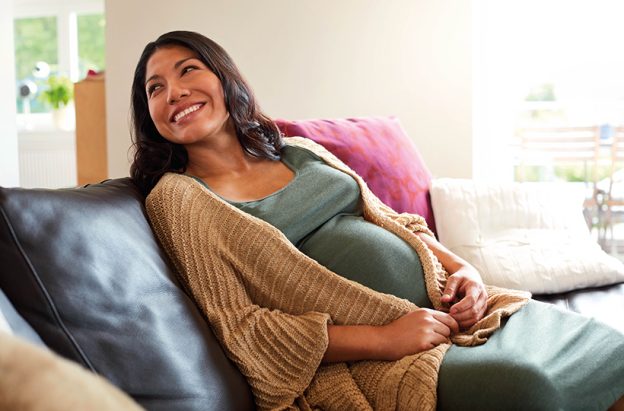
Medicaid enrollees less vaccinated during pregnancy across US
Most individuals in the United States who are pregnant are not getting the vaccines that could protect them — and their babies — from COVID-19, flu, and whooping cough, a new study shows. This is especially true among those who are on Medicaid.
The nationwide study on vaccination during pregnancy was published in the American Journal of Public Health in January 2025. Previous studies have shown gaps for pertussis (whooping cough) and influenza between those who have public insurance, like Medicaid, and those who have private insurance. This study was one of the first studies to demonstrate that the vaccine gap for pregnancy continues for COVID-19 vaccines.
“Unfortunately, our study found that many Medicaid enrollees are missing out on vaccines recommended during pregnancy,” said the study’s senior author, Annette Regan, PhD, MPH, of the Kaiser Permanente Southern California Department of Research & Evaluation in Pasadena, California. “Uptake of COVID-19 vaccine during pregnancy was 43% among privately insured individuals, but only 12% among publicly insured individuals – a 31% gap.”
Dr. Regan, who initiated this research while on the faculty of University of San Francisco, said similar disparities were seen between privately and publicly insured individuals for influenza (33% vs 14%) and pertussis (70% vs 43%) vaccines. During pregnancy, very few individuals received all 3 recommended vaccines: 6.8% for those with private insurance, and only 1.1% for those with public insurance.
Mom’s vaccinations help newborns
“Vaccines during pregnancy protect not only the mother, but also the newborn for up to 6 months,” Dr. Regan said. “When we see gaps in vaccine uptake, this tells us that not all individuals in the community are protected equally. While we cannot say from our data whether this gap is due to less access to immunization services, increased hesitancy toward vaccines during pregnancy, or other reasons, it means that further engagement is needed with these families to address this gap.”
In the study, investigators analyzed medical claims records of privately and publicly insured individuals in the United States to estimate the uptake of COVID-19, influenza, and pertussis vaccines administered during pregnancy. The study included about 500,000 pregnancies across the United States from December 2020 (when COVID-19 vaccines were authorized for use in the US) to September 2022.
Sociodemographic factors also in play
In addition to revealing the gaps in vaccine coverage, the study also showed key sociodemographic factors characterized vaccinated and unvaccinated individuals. Investigators found that the odds of COVID-19 and influenza vaccination were lower among those who used drugs or tobacco during pregnancy, but higher among those with preexisting medical conditions.
“The biggest concern in our findings is the very low vaccination rates that we observed,” Dr. Regan said. “With just 14% of Medicaid-enrolled pregnant individuals vaccinated against influenza and 12% vaccinated against COVID-19, only 1 in 8 pregnant individuals and their newborns are protected from these diseases,” she said. “After this study was completed, RSV vaccines were introduced and recommended during pregnancy, and I fear we will continue to see these patterns.”
The authors concluded that further work is required to better understand the barriers limiting uptake of these vaccines during pregnancy, particularly among Medicaid beneficiaries.
In addition to Dr. Regan, other authors on the research include lead author Stacey L. Rowe, PhD, MPH, with the University of San Francisco; Sheena G. Sullivan PhD, MPH, with the Monash University, Melbourne, Australia; Flor M. Munoz, MD, MSc, of the Baylor College of Medicine, Houston, Texas; Matthew M. Coates, MPH, and Onyebuchi A. Arah, MD, DSc, PhD, MPH, of the University of California, Los Angeles.





